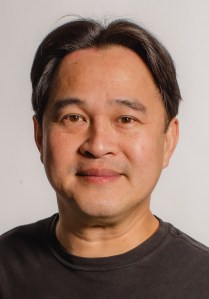Matter Venture Partners raises $300M first fund to invest in ‘hard tech’
Wen Hsieh and Haomiao Huang, both Kleiner Perkins investors, left the firm in 2023 to start their own venture capital fund called Matter Venture Partners. The firm had backing from Kleiner and Taiwanese chipmaker TSMC.
Hsieh was a longtime KPer, having been there for 17 years; Huang had been there four years. With a passion for what they call “hard tech,” Hsieh invested in companies like microLED display technology company LuxVue, acquired by Apple; Amprius, which makes high-energy density lithium-ion batteries; drone maker DJI; and 3D printing company Desktop Metal, which went public via SPAC in 2020. Huang and Hsieh co-led investments in companies like the robotics company Dexterity and the CT scanning company Lumafield.
On Thursday, they announced the closing of a $300 million inaugural fund. Hsieh told TechCrunch it’s considered one of the largest “first funds” raised in 2023. The median venture fund raised that year was around $37 million, according to a PitchBook-NVCA Venture Monitor report.
Matter Venture Partners was initially going for a $200 million fund, and Hsieh acknowledged that “it was a tough time for everybody” — startups and venture capitalists alike — to raise money in 2023.
“We had gone into it anticipating such difficulty and had very modest expectations,” Hsieh said. “But to our surprise, it went really well for us. We closed $300 million last year, in its entirety, and were significantly oversubscribed.”
Knowing when to say “when”
Figuring out the best amount to close the fund is a bit like being “Goldilocks,” Hsieh said. Matter Venture Partners invests at the large seed rounds, Series A and Series B.

Wen Hsieh, co-founder of Matter Venture Partners. Image Credits: Matter Venture Partners
If a fund is undercapitalized, it may not be able to be competitive in deals or won’t be able to support portfolio companies across several rounds, he explained. Overcapitalized and it may have too much money to deploy within a two- or three-year lifetime fund cycle. That could also lead to writing too many checks or sizes of checks that are too big for the appropriate fundraising.
He believes that Matter Venture Partners’ focus on hard tech was the reason for the oversubscription. “The world has realized that most if not many of the foundational technologies and trends of our society today are built on hard tech,” he said. “That really puts wind behind ourselves. We came out successful and unscathed in a very positive way, and we’re very lucky to have raised money at a tough time.”
In addition to Kleiner LP and TSMC, individuals, entrepreneurs and family offices also back the fund. Hsieh, Huang and operating partner Mel Tang are also LPs in the fund.
Leveraging operating partners
Matter Venture Partners provides a unique aspect of having operating partners, which Hsieh said is typically something only larger firms have. One is Mel Tang, former CFO of video doorbell company Ring, which was later acquired by Amazon.
Tang has experience in operations, supply chain management and manufacturing unit economics, and Hsieh believes having expertise like this early-on in the life of a hard tech startup is a good value-add.
In terms of how Matter Venture Partners works with founders, the partners say they pride themselves on being company builders, but not at the expense of getting in the way of founders, Hsieh said. They like to be coaches, partners and jump in, all where appropriate.
All about hard tech

Haomiao Huang, co-founder of Matter Venture Partners. Image Credits: Matter Venture Partners
They put “hard tech” into six buckets: semiconductors everywhere, robotization due to blue-collar labor shortage, generative AI, manufacturing on-shoring and friend-shoring, energy building blocks and life science automation.
“The common theme around these six areas is that we like to invest in the next ‘picks and shovels’ for all six of these trends,” Hsieh said. “There are many gold rushes ongoing, but we would like to provide the ‘picks and shovels’ in every case. We like to fund them and entrepreneurs that contribute to these new innovations.”
So far, Matter Venture Partners has invested in six companies not made public yet. It also doubled down on a few that came from the pair’s Kleiner Perkins days, including Ambiq Micro, a company Hsieh described as “a key player in edge AI,” which is a concept of more easily running AI workloads.
“It’s all about low power,” he said. “The big talk is about how much energy does it consume for inference, or how much energy for training? Ambiq is a world leader in making ultra-low-powered chips. They’ve dominated wearables, and now they’re parlaying that into edge AI applications. The product is having a huge impact, and we’re riding a new wave of energy-efficient AI awareness.”
Ultimately, Matter Venture Partners will invest in between 15 and 20 companies with the new fund, Hsieh said.




